
Allegheny County Medical Society


Allegheny County Medical Society
Allegheny County Medical Society
Editorial
• Self-Care in Healthcare Deval (Reshma) Paranjpe, MD, MBA, FACS
Membership
• Q&A with Lauren Mathos, DO, FACP
ACMS News
• Member Acknowledgements
ACMS News
• ACMS in Action: July 2025
ACMS News
• Beyond the Skin: The Hidden Link Between Psoriasis and Cardiovascular Disease
Aya Al-Nazal, MS2, MS
ACMS News
• Meet The ACMS Board Candidates

ACMS News
• Specialty Group Updates ACMS Staff: Nadine Popovich, Melanie Mayer and Haley Thon
Medical News
• Reportable Diseases 2022-2024
Allegheny County Health Department Selected Reportable Diseases/ Conditions
Jennifer Fiddner, MPH, CIC
Allegheny County Health Department
Article
• The State of PrEP in Allegheny County AIDS Free Pittsburgh
Article
• More Than a Gift: Physicians as Partners in the Donor Milk Lifeline Marissa Vulakovich, MSN, CBC
Article
• Protecting Public Health, Together: ACMS and ACIC Launch Strategic Partnership
Sara Hussey, MBA, CAE
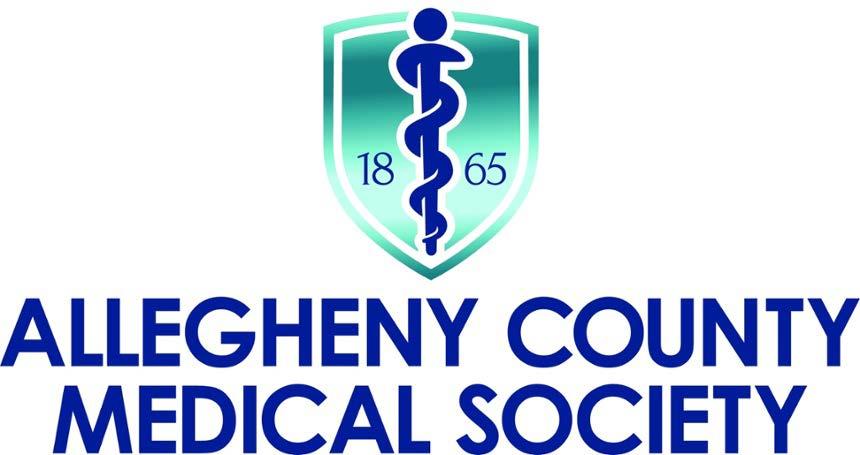
2025
Executive Committee and Board of Directors
President
Keith T. Kanel, MD
President-elect
Kirsten D. Lin, MD
Secretary
Richard B. Hoffmaster, MD
Treasurer
William F. Coppula, MD
Board Chair
Raymond E. Pontzer, MD
Board of Directors
Term Expires 2025
Anuradha Anand, MD
Amber Elway, DO
Mark A. Goodman, MD
Elizabeth Ungerman, MD, MS
Alexander Yu, MD
Term Expires 2026
Michael M. Aziz, MD, MPH, FACOG
Michael W. Best, MD
Micah A. Jacobs, MD, FIDSA
Kevin G. Kotar, DO
Jody Leonardo, MD
Term Expires 2027:
David J. Deitrick, DO
Sharon L. Goldstein, MD
Prerna Mewawalla, MD
Raymond J. Pan, MD
Nicole F. Velez, MD
James Latronica, DO, DFASAM
Richard B. Hoffmaster, MD
Finance
William F. Coppula, MD
Nominating
Kirsten D. Lin, MD
Women’s Committee
Prerna Mewawalla, MD & Meilin Young, MD
Managing Editor
Sara C. Hussey, MBA, CAE
ACMS Executive Director shussey@acms.org
Medical Editor
Deval (Reshma) Paranjpe, MD reshma_paranjpe@hotmail.com
Bulletin Designer
Victoria Gricks victoria@thecorcorancollective.com
2025 Bulletin Editorial Board
Richard Daffner, MD, FACR
Robert Howland, MD
Anthony Kovatch, MD
Charles E. Mount, MD, FAAD
Alexandra Johnston, DO
John P. Williams, MD
Executive Director
Sara Hussey shussey@acms.org
Vice President - Member and Association Services
Nadine M. Popovich npopovich@acms.org
Manager - Member and Association Services
Haley Thon hthon@acms.org
Operations CoordinatorACMS & ACMS Foundation
Melanie Mayer mmayer@acms.org
Manager - Operations and Finance
Elizabeth Yurkovich eyurkovich@acms.org
Bulletin Designer Victoria Gricks victoria@thecorcorancollective.com
EDITORIAL/ADVERTISING
OFFICES: Bulletin of the Allegheny County Medical Society, 850 Ridge Avenue, Pittsburgh, PA 15212; (412) 321-5030; fax (412) 321-5323.
USPS #072920. PUBLISHER: Allegheny County Medical Society at above address.
The Bulletin of the Allegheny County Medical Society is presented as a report in accordance with ACMS Bylaws.
The Bulletin of the Allegheny County Medical Society welcomes contributions from readers, physicians, medical students, members of allied professions, spouses, etc. Items may be letters, informal clinical reports, editorials, or articles. Contributions are received with the understanding that they are not under simultaneous consideration by another publication.
Issued the third Saturday of each month. Deadline for submission of copy is the SECOND Monday preceding publication date. Periodical postage paid at Pittsburgh, PA.
Bulletin of the Allegheny County Medical Society reserves the right to edit all reader contributions for brevity, clarity and length as well as to reject any subject material submitted.
The opinions expressed in the Editorials and other opinion pieces are those of the writer and do not necessarily reflect the official policy of the Allegheny County Medical Society, the institution with which the author is affiliated, or the opinion of the Editorial Board. Advertisements do not imply sponsorship by or endorsement of the ACMS, except where noted.
Publisher reserves the right to exclude any advertisement which in its opinion does not conform to the standards of the publication. The acceptance of advertising in this publication in no way constitutes approval or endorsement of products or services by the Allegheny County Medical Society of any company or its products.
Annual subscriptions: $60
Advertising rates and information available by calling (412) 321-5030 or online at www.acms.org.
COPYRIGHT 2025: ALLEGHENY COUNTY MEDICAL SOCIETY POSTMASTER—Send address changes to: Bulletin of the Allegheny County Medical Society, 850 Ridge Avenue, Pittsburgh, PA 15212. ISSN: 0098-3772

By: Deval (Reshma) Paranjpe, MD, MBA, FACS
ACMS is here to support you in your life as a physician so that you can do your best for the people who depend on you—including and especially yourself. You’ve doubtless heard the self-care analogy to the airplane maxim about always putting your own oxygen mask on first before helping others, but sometimes it’s hard to work out what a figurative oxygen mask looks like. My oxygen mask may look completely different from your oxygen mask. What works easily for your peers may not be the solution for you, and vice versa. Self-care is more than a bubble bath after work, or visiting a spa, or exercise, or treating oneself to a fancy coffee now and then—although it can include all of those things. Self-care is more than buying the latest self-care gadget or program advertised on Instagram or TV and thinking you’ve ticked off that box. Self care is definitely different than keeping up with the Joneses. A new car, suit, handbag, jewelry, bragging rights… are all momentary hits of dopamine. Sure they feel great, but these joys are fleeting, and mask your real needs. Self-care is not the same as spending money.
Self-care is treating yourself like you would treat someone you love—with respect, love and care. If the most important person in your life (spouse, partner, child, parent, sibling, best friend….) were hurting, tired, burnt out, upset about work, wearied by life, feeling stagnant in life, devoid of joy, unhealthy……how would you comfort them and buoy them? How would you advise them? How would you take care of them? And how would you talk to them? Gently, kindly, patiently and with
understanding—because you love them. You would give them your time and your energy.
You deserve to be loved like this too. Now flip the script—if it were you in that situation, feeling low—how would you want the most important person in your life to support you? If you were suddenly cloned, or twinned, and you had to support your twin who had taken on your life, how would you treat them? Take the answers to these questions and do those things for yourself on a regular basis.
Some people have angelically supportive spouses and partners, but even there it is impossible to be the perfect partner all the time. Many people are lonely and emotionally unsupported in their marriages. Some people are in less-than-perfect relationships. Some people are single and have no one to come home to and heal with after a bad day, not even a dog. Friends are wonderful, but friends get busy. You cannot, should not depend on anyone all the time to make you feel whole and make you feel better. It is the nature of life.
If you find there’s no one to be kind and loving to you, be kind and loving to yourself. And when you can, spread your love around to others who need it—it will always find its way back to you.
Self-care may look like treating yourself gently and avoiding negative self-talk. It may look like setting aside time for exercise and self-maintenance and health appointments. It may look like changing aspects of your work, setting healthy boundaries in different parts of your life, and strengthening social connections and relationships
that nourish you. It may look like travel, therapy, making sound financial decisions, taking control of your life, enjoying creative outlets. It may look like spending more time with the people that matter most to you, or getting away from it all and being still in the wild beauty of nature.
Self-care as a physician can also look like being part of ACMS--an organization committed to your wellbeing and success both personally and professionally. This year, ACMS is elevating “Self-Care in Health Care” beyond a single annual focus into an ongoing, yearlong commitment to physician wellness. While past efforts concentrated on a designated wellness month, 2025 marks a shift to sustained initiatives - honoring that caring for clinicians isn’t seasonal but essential. Watch your emails and newsletters in September for more details, programming, guidance, and prizes! Also look for the AMA Update in our upcoming wellness e-newsletter showing some good news on physician burnout—it is finally decreasing across all career stages according to a nationwide survey of 18K physicians. The exclusive AMA survey highlights how health systems are making meaningful progress with well-being initiatives through programs like Joy in Medicine®, Organizational Biopsy®, and STEPS Forward®. If you’re curious about what’s really working in physician support and what more still needs to be done, this article provides a clear, hopeful snapshot and practical leadership inspiration.
Wishing you a beautiful month ahead.
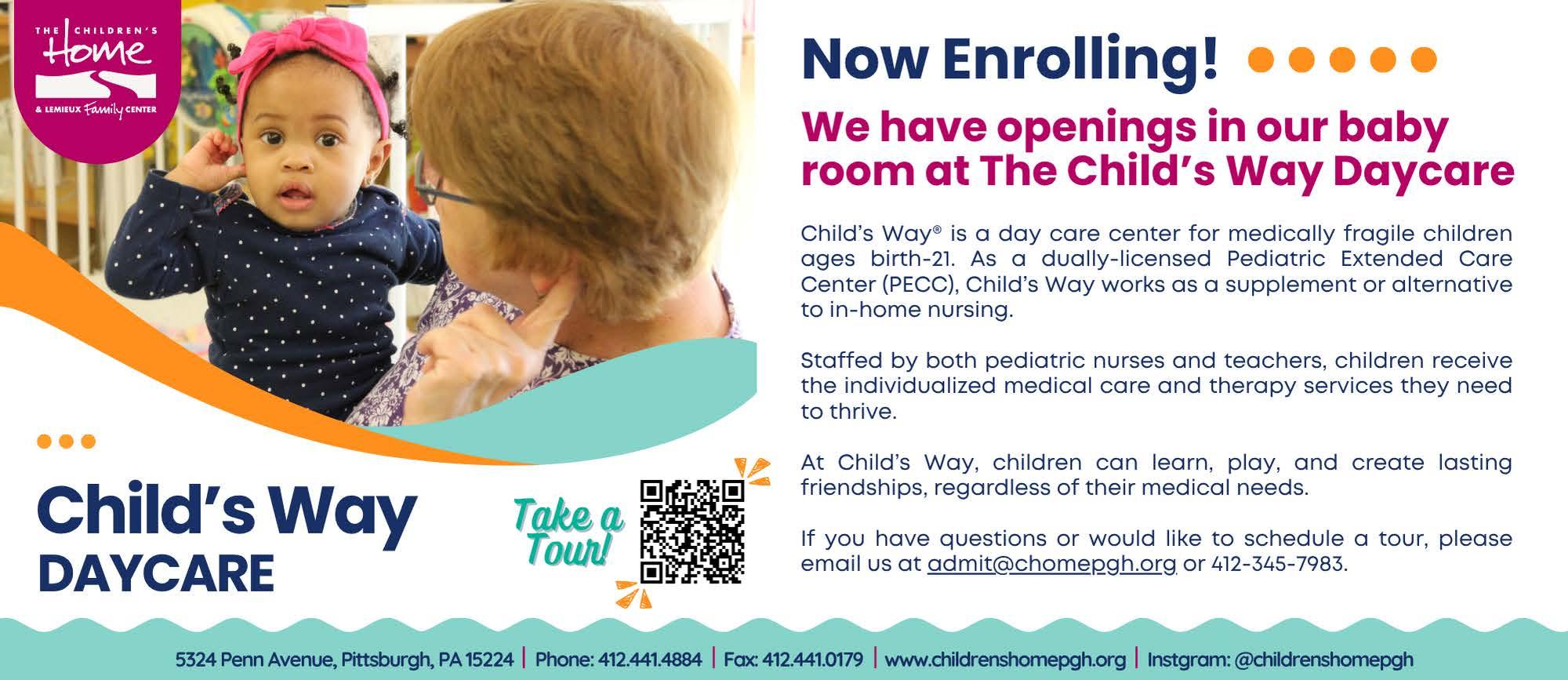

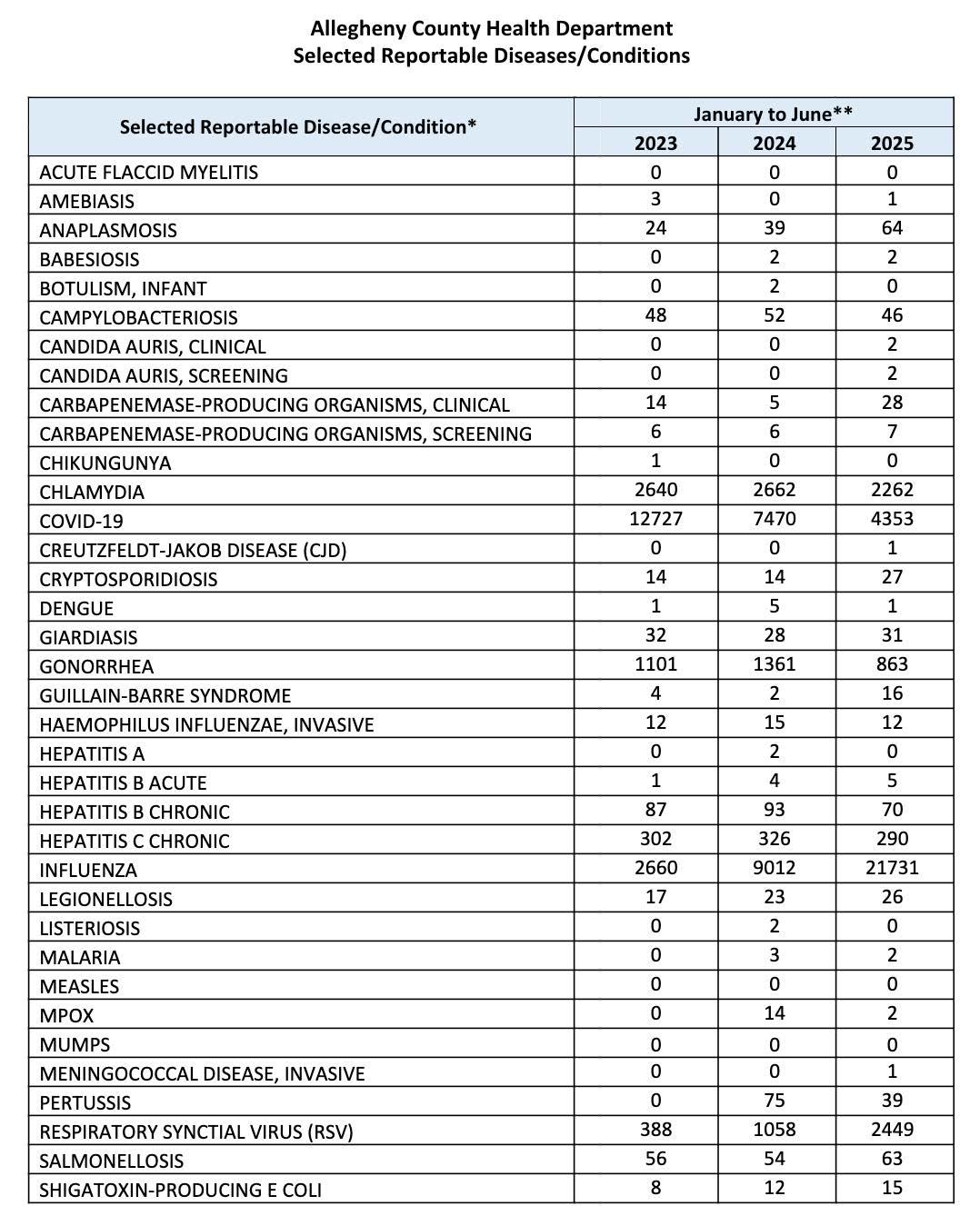

* Case classifications reflect definitions utilized by CDC’s Morbidity and Mortality Weekly Report.
** These counts do not reflect official case counts, as numbers for 2025 are not yet finalized. Inaccuracies in working case counts may be due to reporting/investigation lag.
NOTE: Disease reports may be filed electronically via PA-NEDSS. To register for PA-NEDSS, go to https://www.nedss. state.pa.us/NEDSS. To report outbreaks or diseases reportable within 24 hours, please call the Health Department’s 24-hour telephone line at 412-687-2243. For more complete surveillance information, see ACHD’s 10-year summary of reportable diseases: disease-table-2014-to-2023-final.pdf
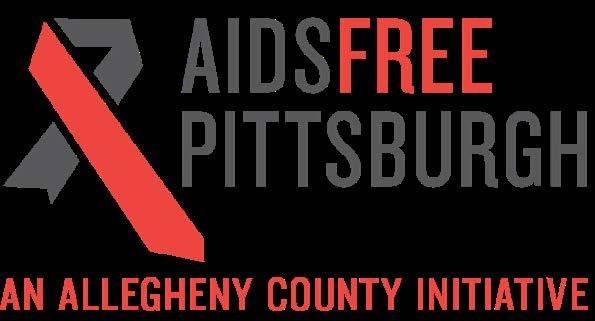
By: AIDS Free Pittsburgh
HIV remains a persistent and unevenly distributed public health challenge in Allegheny County. While biomedical advancements have transformed HIV prevention and care, not all communities benefit equally. Black individuals, gay and bisexual men, transgender women, people who inject drugs (PWID), and sex workers remain disproportionately impacted. This reflects systemic inequities in housing, access to care, stigma, and trust in healthcare systems. Fortunately, tools to prevent HIV transmission are more effective than ever.
Pre-exposure prophylaxis (PrEP) is a powerful tool for preventing HIV. PrEP reduces the risk of HIV transmission by up to 99% for sexual contact and 74% for injection drug use. However, PrEP uptake has been slow, especially among communities most impacted by HIV. In 2024, AIDS Free Pittsburgh partnered with research marketing firm, Campos, to conduct a county-wide PrEP survey to better understand who was being reached by PrEP awareness messaging — and who wasn't.
The survey collected responses from over 1,300 Allegheny County residents online and in-person. Participants answered questions about their familiarity with PrEP, perception of HIV risk, and barriers to PrEP access. The survey found that nearly half (46%) of all respondents reported familiarity with PrEP, with disparities that parallel the broader HIV epidemic. While LGBTQ+ respondents reported high awareness of PrEP, straight or heterosexual individuals had much lower rates of awareness. PrEP use was significantly
lower for several communities disproportionately impacted by the HIV epidemic, including individuals who participate in in-person sex work, people who inject drugs, individuals with a recent STI diagnosis, and people with multiple sex partners. Even among individuals aware of PrEP, over 60% were unsure of where to access PrEP. These results confirmed what frontline physicians already suspect: standard HIV prevention messaging is not reaching everyone. To end the HIV epidemic, we must tailor our efforts to meet the needs of impacted communities.
This data came from the community, so it belongs to the community. This belief shaped AFP’s new data walks, a series of interactive events designed to return survey findings to the community in accessible, engaging ways.
Each data walk features seven stations presenting local data through visualizations, discussion prompts, and interactive materials. Held at community events, bars, art galleries, and health clinics, the walks encourage participants to reflect on the data’s implications for their own communities and contribute ideas for improving access.
For physicians, these data walks create new opportunities to connect with patients around HIV prevention in the spaces where care happens. When data is made visible and approachable, it helps normalize conversations about sexual health and build patient trust.
Looking Head: Lenacapavir
In a milestone for HIV prevention, the FDA recently approved lenacapavir
for PrEP: a long-acting injectable administered just twice a year. Lenacapavir’s biannual timing could reduce adherence challenges: stigma in clinical settings, daily pill regimens, housing instability, and other experiences that make frequent clinic visits difficult.
Allegheny County has an opportunity to be a national leader in the adoption of long-acting prevention methods, but only if systems are in place to ensure equitable rollout. That means investing now in patient education, clinic readiness, and partnerships with trusted community groups.
Your Role in Ending the Epidemic
With better HIV prevention tools than ever and clear evidence of where gaps exist, physicians in Allegheny County are positioned to be key drivers of HIV prevention. Every healthcare provider, regardless of specialty, can make a difference by integrating sexual health conversations into routine care, offering or referring for HIV testing, and proactively discussing PrEP with potentially eligible patients.
To learn more about local PrEP resources, community outreach initiatives, or to get involved in upcoming provider trainings, visit aidsfreepittsburgh.org or email info@ aidsfreepittsburgh.org.
AIDS Free Pittsburgh (AFP) is a public health movement to end the HIV epidemic in Allegheny County by 2030. The AFP collaborative consists of government agencies, healthcare institutions, and community-based organizations that strive to support and improve the care of people living with HIV/AIDS, as well as communities most impacted by HIV.
By: Marissa Vulakovich, MSN, CBC
Donor human milk is a vital therapy for NICU infants, sustained by a community of giving that needs to grow.
"Human milk optimizes healthcare outcomes and lowers healthcare costs. When a mother's own milk is not available, pasteurized donor milk from an accredited milk bank is the next best option, especially for medically fragile infants. In some cases, this milk can, in fact, be life-saving."
These words from Dr. Jennifer Zarit, pediatrician and Medical Director at the Mid-Atlantic Mothers' Milk Bank, capture the core of our mission. When a medically fragile infant arrives in a neonatal intensive care unit (NICU), every decision counts. For these vulnerable newborns, human milk is not just nutrition; it is medicine. At the Mid-Atlantic Mothers' Milk Bank (MAMMB), we have dedicated ourselves to ensuring that babies who need this life-saving resource the most have access to it.
Founded in 2016 by Denise O’Connor, Cyndy Verardi, and a team of local neonatologists and pediatricians, MAMMB is a nonprofit organization accredited by the Human Milk Banking Association of North America (HMBANA). Our mission is clear: to provide safe, pasteurized donor milk to infants in need. Today, we serve 85 NICUs and Mother/Baby units across Pennsylvania, Maryland, West Virginia, New Jersey, and New York.
The Need Is Great
Human milk is especially critical in the NICU setting. Yet, 70% of mothers with a baby in the NICU are unable to provide all the milk their infant needs.
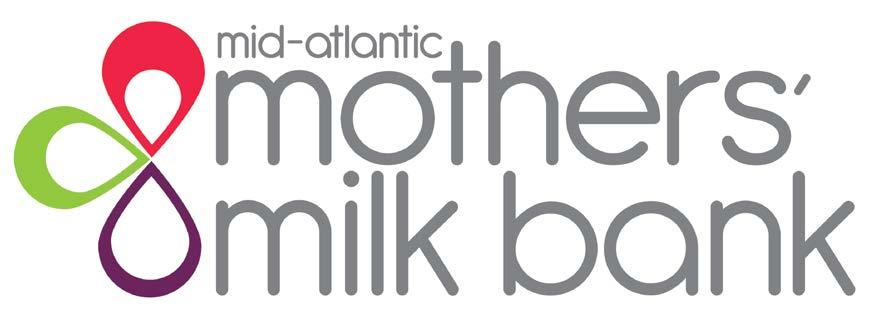
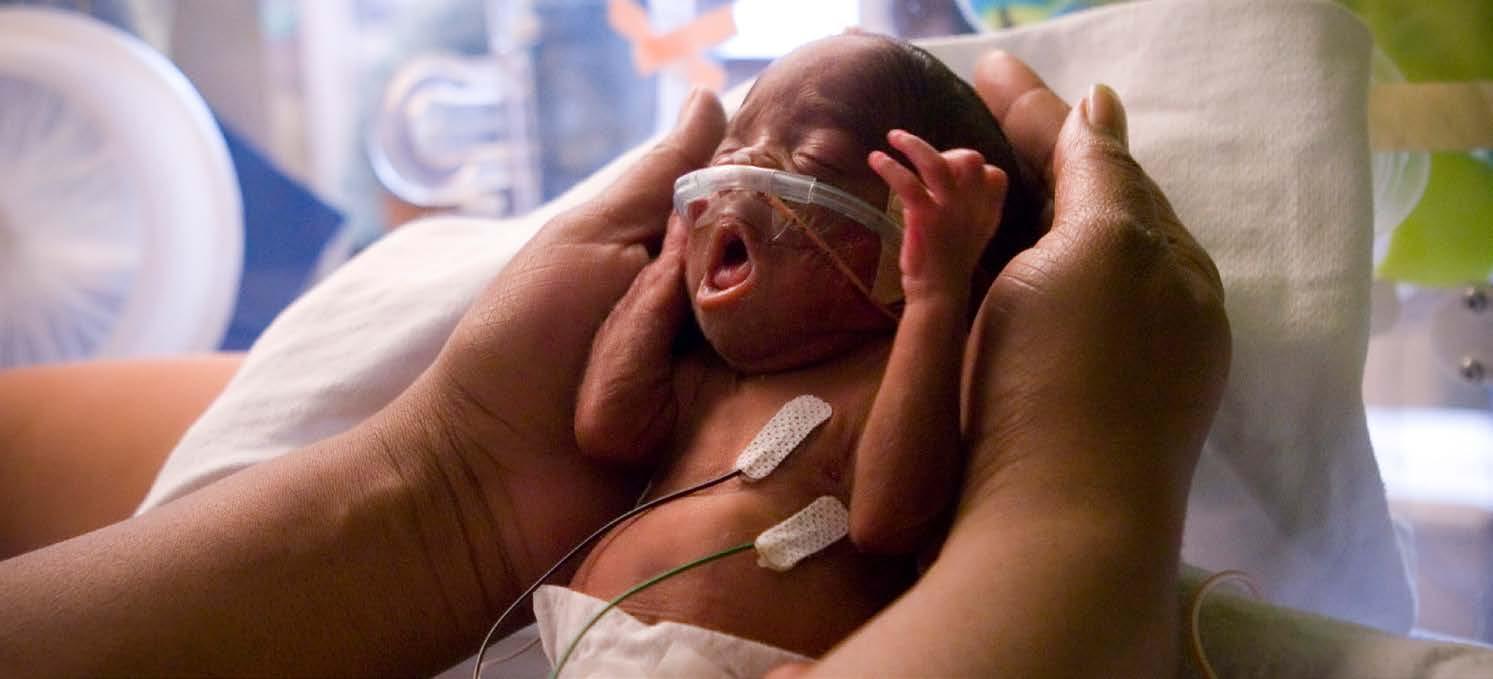
Whether due to medical complications, maternal stress, or delayed milk production, these mothers face immense pressure and that is where donor milk plays a vital role.
In 2024 alone, MAMMB processed an astounding 430,000 ounces of donor milk. This milk has a direct impact on health outcomes, helping to significantly reduce one of the most serious complications of premature birth, necrotizing enterocolitis (NEC).
NEC is an inflammation of the gut that affects up to 10% of atrisk infants, particularly those born significantly premature or with certain gastrointestinal or cardiac conditions. Of those affected, 50% require surgery, and the overall mortality rate stands at 25%, rising to 40% in cases requiring surgical intervention. For survivors, NEC can result in longterm health complications, including short gut syndrome and altered neurodevelopmental outcomes.
The good news is that using donor milk instead of formula for supplementation in at-risk infants
can reduce the incidence of NEC by more than half. Even more striking, surgical NEC can be reduced by up to 90%. Additionally, donor milk use is associated with lower rates of lifethreatening complications, shorter hospital stays, and increased rates of exclusive maternal breastfeeding success.
While regional NICUs remain the top priority of the Mid-Atlantic Mothers’ Milk Bank, with nearly 80% of donor milk distributed to hospitalized infants, we also recognize the important need for donor milk beyond the hospital setting. We are proud to be among the minority of milk banks that serve outpatients with medical needs. Access to donor milk for outpatients in Pennsylvania has become easier with the passage of Owen’s Law, which took effect in January 2024. This law mandates Medicaid coverage for pasteurized donor human milk for infants under 12 months who are at high risk. This law ensures coverage for babies with
medical conditions including very low birth weight, gestational age of 34 weeks or less, neonatal abstinence syndrome, and certain cardiac or gastrointestinal issues. This legislation expands equitable access to donor milk, helping to meet the needs of Pennsylvania’s most vulnerable infants both in and out of the hospital.
While the NICU is where the majority of our milk is used, the reach of donor milk is growing. An increasing number of hospitals in our region now offer "bridge milk". “Bridge milk” is shortterm donor milk provided to healthy newborns in the first two weeks of life whose needs are greater than their mother’s milk production. Bridge milk supports the development of a diverse gut microbiome and has been linked to a higher rate of successful breastfeeding.
We also serve the outpatient population, accounting for approximately 20% of our distributed milk. These recipients are typically infants who cannot thrive on formula, even prescription types, or those who require the immunological protection that only human milk can provide. Outpatient donor milk requires a prescription and is dispensed with care to ensure the highest-risk infants receive priority access.
Who Donates and How
Every ounce of milk we distribute begins with a generous donor. Our donors are lactating parents with a surplus of milk. Some are healthcare workers who understand the importance of human milk from a clinical perspective. Others are bereaved mothers who, in the midst of their own loss, choose to give life and healing to another infant. All are compassionate and generous and nothing short of heroic.
Before donating, each potential donor completes a screening process. This includes a comprehensive medical and lifestyle questionnaire, a medical provider form to be completed by the OB/GYN and pediatrician, a review of all medications, education on safe milk
expression, cleaning, and storage, and serological testing to screen for HIV, Hepatitis, HTLV, and Syphilis. These measures ensure we are providing the safest donor milk to medically fragile infants.
Once the milk arrives at our facility, it is minimally processed to ensure safety while preserving its vital components. We pool milk from multiple donors in an effort to normalize variations in macronutrient content. It also increases the diversity of the immune factors within the pool.
Each batch of pooled donor milk undergoes thermal pasteurization via the Holder method (62.5°C for 30 minutes), a validated process that inactivates pathogenic bacteria and viruses while preserving a significant proportion of the milk’s bioactive components, thereby ensuring both safety and therapeutic value for medically fragile infants. It is tested for bacterial contamination after pasteurization, screened for the common drugs of abuse, and analyzed for macronutrient content. We also provide specialty milk, including preterm milk, colostrum, diet-restricted options (dairy and/or soy), defatted milk, and cream…just to name a few!
The Circle of Care: From Donor to Infant
Our work is only possible because of an ecosystem of care that includes donors, healthcare providers, and hospital partners. Clinicians are often the first to recognize potential donors, as they regularly care for lactating parents with extra milk who may not realize they are eligible to donate. By talking about milk donation during postpartum visits, educating families about the impact of donor milk, and prescribing it when medically necessary, providers play a vital role in sustaining this life-saving resource. Raising awareness is not just about increasing donations. It is also about helping parents feel informed and confident in the safety and efficacy of donor milk should their child ever
need it. Donor milk programs reinforce the importance of breastfeeding and highlight human milk as a medical and nutritional standard.
As we continue to expand our outreach and services, we remain focused on our ultimate goal: ensuring that every medically fragile infant who needs donor milk receives it. Human milk is more than a feeding choice. It is a cornerstone of neonatal care, especially for our most vulnerable infants.
Our hope is that the medical community will continue to champion the use of donor milk and help spread the word about the Mid-Atlantic Mothers' Milk Bank. With your support, we can grow our donor base, educate families, and improve outcomes for medically fragile infants across the MidAtlantic region.
We invite you to join us for a Clinician Open House on Tuesday, September 30th, from 9:00 AM to 2:00 PM. Come tour our facility, see our milk processing in action, and learn more about our work supporting medically fragile infants in our region. Light refreshments will be served. We are located at 3127 Penn Avenue, Pittsburgh, PA 15201. Kindly RSVP at mvulakovich@ midatlanticmothersmilkbank.org to let us know you'll be attending. We look forward to welcoming you!
Together, we can complete the circle of care…one ounce at a time.

Lauren Mathos, DO, FACP, is a true Pittsburgh native and Internal Medicine physician dedicated to serving her community. As core faculty for the Allegheny Health Network (AHN) Internal Medicine Residency Program and Assistant Professor of Medicine at Drexel University, Dr. Mathos wears many hats, from clinical practice to mentoring future physicians. When she is not caring for patients, directing the MS3 Internal Medicine Clerkship at Allegheny General Hospital, or co-directing the AHN Lifestyle Medicine Track, she is busy creating curriculum and mentoring the future innovators of healthcare. Recognized
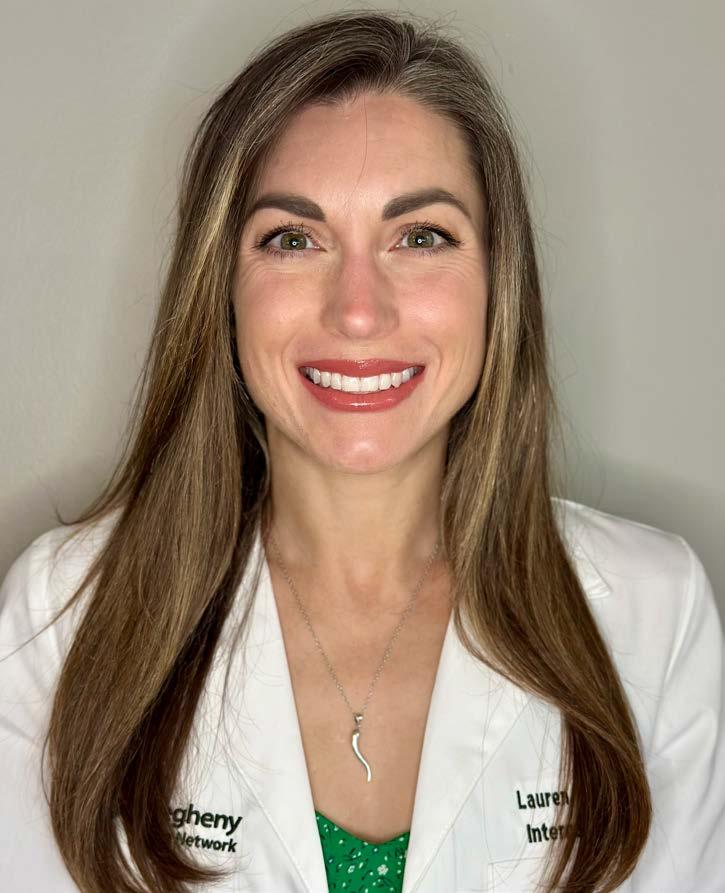
as a Pennsylvania Medical Society Top Physician Under 40, Dr. Mathos strives to approach healthcare with compassion and innovation to improve the lives of her patients every day.
Q: CAN YOU SHARE A LITTLE ABOUT YOUR BACKGROUND AND WHAT LED YOU TO A CAREER IN MEDICINE?
A: I’m about as Pittsburgh as they come—born and raised just east of the city, and incredibly proud to call this region home. My journey into medicine really started with my parents, who were both family physicians. Growing up, I witnessed firsthand their unwavering dedication to their patients and the genuine satisfaction they found in providing care. Despite the long hours and inherent stresses of the profession, they loved what they did, and I deeply admired their commitment to the community. Seeing that dedication and joy truly made me appreciate the privilege and calling of being a physician, which ultimately led me to pursue this path.
Q: WHAT INSPIRED YOU TO PURSUE YOUR CURRENT SPECIALTY?
A: After graduating from medical school, it became clear that I most enjoyed variety in my days! It wasn't easy figuring this out while trying to focus my goals, but I realized that medicine has afforded me multiple career options that all work well. I'm
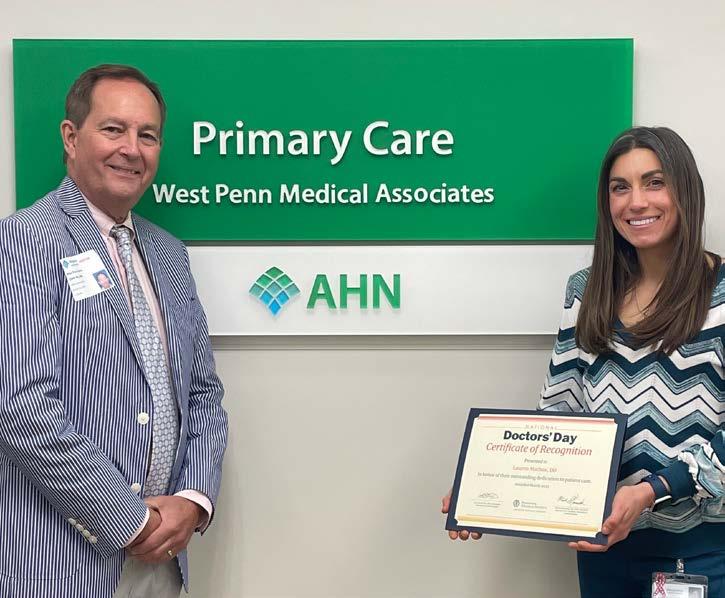
inspired by internal medicine for the relationships, the deep and quick critical thinking, and the continued lifelong learning it encourages. You need to be a thinker—and sometimes a sleuth—to solve puzzles. You also get to act as a coach and a teacher. It can be extremely challenging, but sometimes it's as simple as being able to explain important details clearly to patients. On a personal level, it lets me incorporate variety. I get to see patients, and I get to help guide residents and students.
Q: CAN YOU TELL US ABOUT YOUR CURRENT ROLE AND WHAT A TYPICAL WORK DAY OR WEEK LOOKS LIKE FOR YOU?
A: My workdays are diverse, and I love that aspect of my job. As core faculty for the AHN Internal Medicine

Residency Program, I help shape the education of future physicians. As MS3 Internal Medicine Clerkship Director with Drexel University, I support and mentor third-year students. I'm also codirector of the Lifestyle Medicine Track, where I find inspiration in creating new pathways to care and building meaningful partnerships with patients. There’s a real sense of joy in that space.
Each week looks different—one day I’m teaching at the bedside with residents, another I’m seeing patients in my outpatient clinic, and another I’m building curriculum to give students the tools they’ll need tomorrow. I never expected my career would be so innovative and varied. Even in the short time since finishing training, I’ve found this work to be both encouraging and inspiring, and it keeps my passion going. It makes every day worthwhile.
Q: HOW DID YOU FIRST GET INVOLVED WITH THE ALLEGHENY COUNTY MEDICAL SOCIETY OR WHAT HAS YOUR OVERALL ENGAGEMENT BEEN WITH THE ACMS?
A: I learned about ACMS through a colleague who highly recommended it. They highlighted the many benefits the society offers for both practicing physicians and those involved in medical education, so I thought it was worth exploring. Since becoming a member, I’ve been impressed by the opportunities for professional development and the resources available to support physicians in the community.
I think it’s important to continue growing so that when our students and colleagues look to us for guidance, we remain educated—as both leaders and clinicians. Being involved has been incredibly valuable for my professional growth and for building connections with other members here in Pittsburgh.
Q: WHAT HAS BEEN THE MOST REWARDING ASPECT OF BEING AN ACMS MEMBER?
A: Without a doubt, the most rewarding aspect of being an ACMS member is the sense of community and shared purpose. ACMS truly stands for something meaningful in its dedication to supporting physicians in this city—not only clinically, but through professional development as well.
One recognition I personally loved was being named to the 40 Under 40 group. I carry that honor into all my work with new learners as a way to pass on our shared mission. It feels like being inducted into a group of like-minded individuals who teach, uplift, and support one another.
Plus, access to resources like CME opportunities and regular communications such as The Bulletin are invaluable for staying current with developments in medicine and healthcare policy. The educational materials are especially helpful and often applicable in my work with students during training.
Q: WHAT ADVICE WOULD YOU GIVE TO MEDICAL STUDENTS OR EARLYCAREER PHYSICIANS?
A: It’s okay not to know—but it’s not okay not to care. Medicine is constantly evolving, so embrace lifelong learning. As you build your team, it makes an immeasurable impact to have people who uplift you and want you there to uplift others, too.
Remember, you don’t have to know everything, and there’s incredible value in advocating for the community. We’re here for so many—and the community can be improved, starting right at the bedside.

Q: OUTSIDE OF MEDICINE, WHAT ARE YOUR HOBBIES OR INTERESTS?
A: I love hitting the slopes! Skiing is a family sport with tons of great memories. I also enjoy staying active with weight training, biking, and hiking.
Q: HOW DO YOU MAINTAIN WORKLIFE BALANCE?
A: Ah, work-life balance—the perpetual quest! Maintaining it definitely requires conscious effort, and it’s not easy. At the heart of it all, I attribute my ability to manage to being blessed with the most unconditionally loving husband you could imagine. He always supports my ideas and goals, no matter how extreme. I’m also fortunate to have my parents nearby to help, and friends who are more like family.
Q: WHAT IS ONE SENTIMENT YOU'D LIKE TO SHARE WITH YOUR FELLOW ACMS MEMBERS?
A: I'm honored to be part of this community and committed to our shared goal of providing compassionate care to those in need. Being recognized as one of the 40 Under 40 inspires me to continue this important journey and make everyone proud.















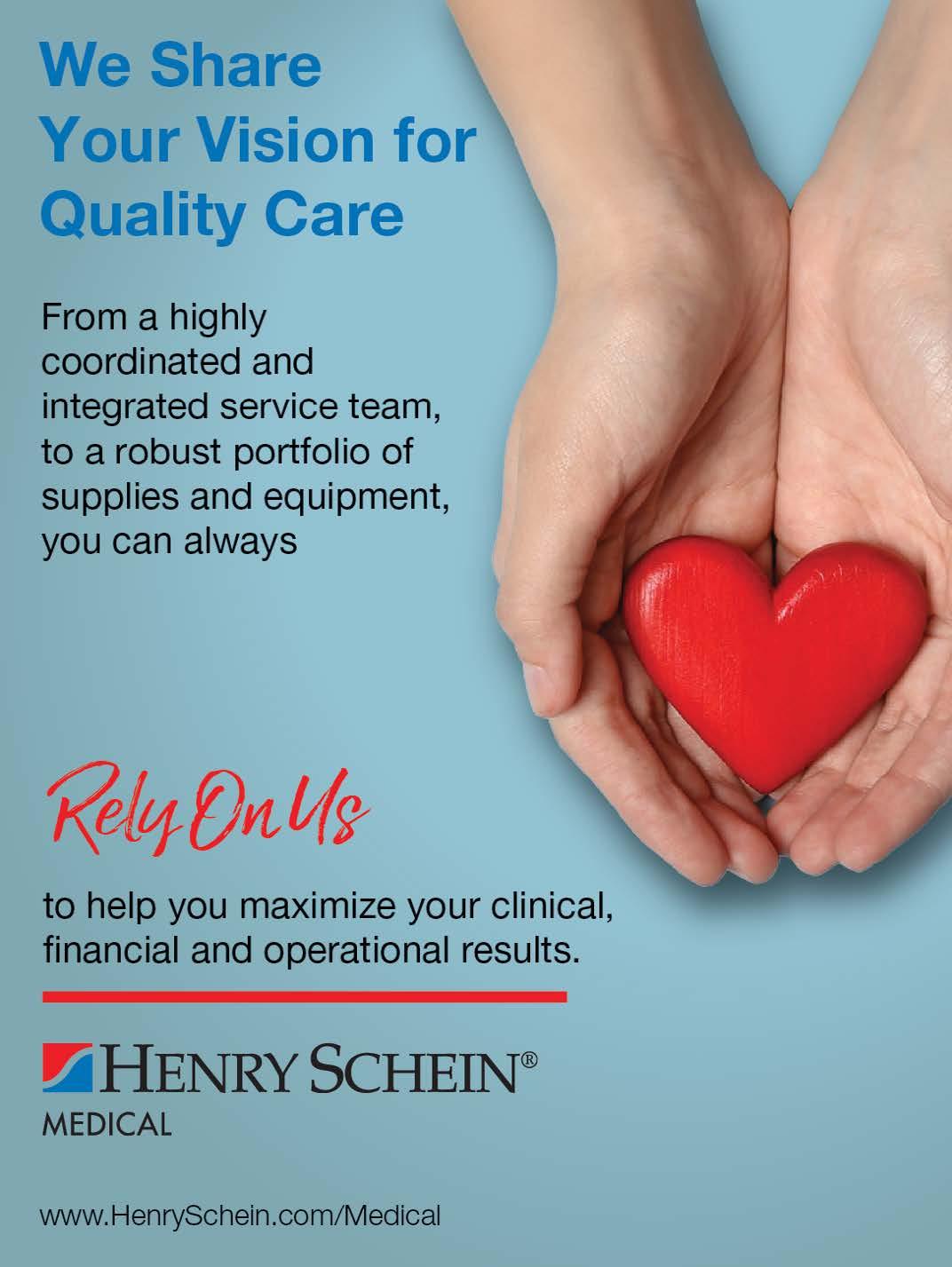
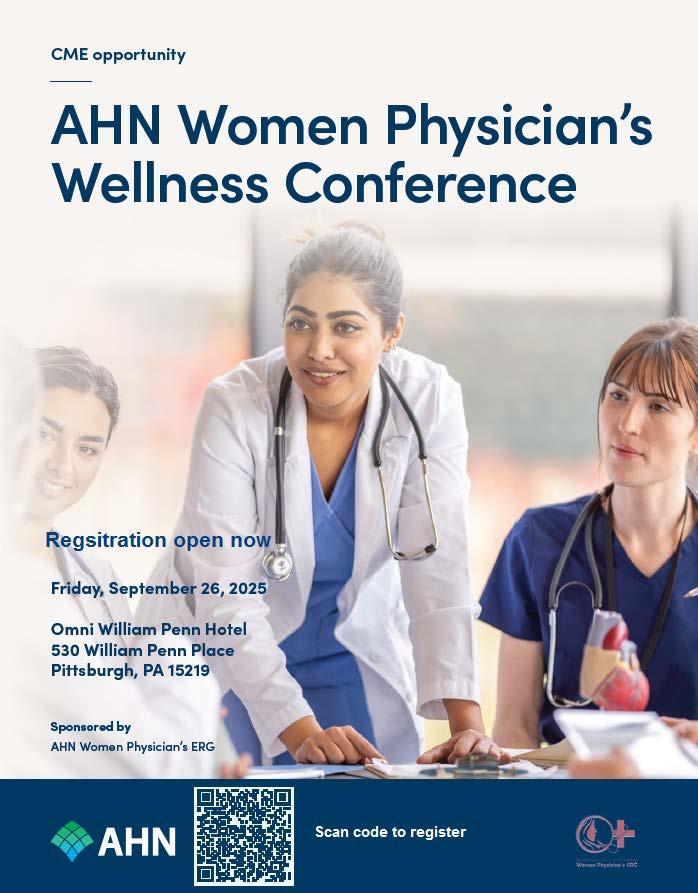


*This is an advertorial.
BRIAN PATRICK BRONSON, ESQ.
For physicians, the ability to earn a living is inseparable from the ability to practice medicine. Years of education, training, and dedication have culminated in a career that not only provides purpose, but also financial stability. Yet few of us stop to consider what would happen if an injury or illness suddenly took that ability away. Many physicians believe they are protected through the disability insurance offered by their hospital system, private practice group, or employer. However, relying solely on employer-provided long-term disability (LTD) coverage – particularly when it falls under the Employee Retirement Income Security Act (ERISA) – can be a serious mistake.
While the well-intentioned, employer-sponsored disability insurance plans are governed by ERISA, a federal law that heavily favors insurance carriers in the event of a claim dispute. Under ERISA, if your disability claim is denied, you often face a limited ability to introduce new evidence during the appeals process. Even worse, courts tend to defer to the insurance company’s decision unless it can be shown to be arbitrary or capricious – a high legal bar. In contrast, an individually owned policy falls under state insurance laws, which often allow more favorable standards of judicial review and a broader array of consumer protections. With a private policy, your ability to appeal or file suit over a denied claim is more robust, and the definition of disability is more precise and physician-friendly (e.g., “own occupation” coverage that protects your ability to practice in your specialty, rather than work in any job).
If you were prudent enough to purchase a personal disability insurance policy early in your career, that’s commendable. But when was the last time you reviewed it? Policies purchased during residency or early practice years often fail to keep up with increased earnings, lifestyle changes, or family responsibilities.
You may be underinsured and not even realize it. For example, a policy that covers $6,000 per month may have been adequate a decade ago, but today it might only protect a fraction of your current income. Many older policies also lack valuable riders such as cost-ofliving adjustments (COLA) or future purchase options.
1. Get an Independent Review
Whether you have a group policy, an individual policy, or both, now is absolutely the time to make sure you are adequately covered. We encourage all physicians to request a review of their current disability coverage. A Long-Term Disability attorney will examine the terms, definitions, and benefit amounts to help you understand exactly what you’re protected against – and what gaps may exist.
2. Don’t Rely Solely on Your Employer
Even the absolute best hospital-provided LTD plan can leave significant gaps. A personal policy, particularly one tailored to your specialty and income level, is your strongest financial safeguard.
3. Make Disability Insurance a Priority
You would never go without malpractice insurance. Disability insurance deserves the same attention because your ability to earn a living is your greatest asset.
Big Picture
Disability is not a distant risk. It is a very real one that affects physicians more than we might like to admit. Securing adequate, individually owned coverage is not just prudent; it’s essential. And reviewing your current policy is a smart step to ensure your financial future is well protected.
Brian Patrick Bronson is an attorney with Quatrini Law Group. He concentrates his practice in the areas of Disability Insurance, ERISA, and Social Security Disability. Brian understands how long and short term disabilities insurances are governed by ERISA (the Employee Retirement Income Security Act of 1974), as well as how they can interact with and affect other benefits. Brian can be reached at (724) 552-2755 or bbronson@qrlegal.com.
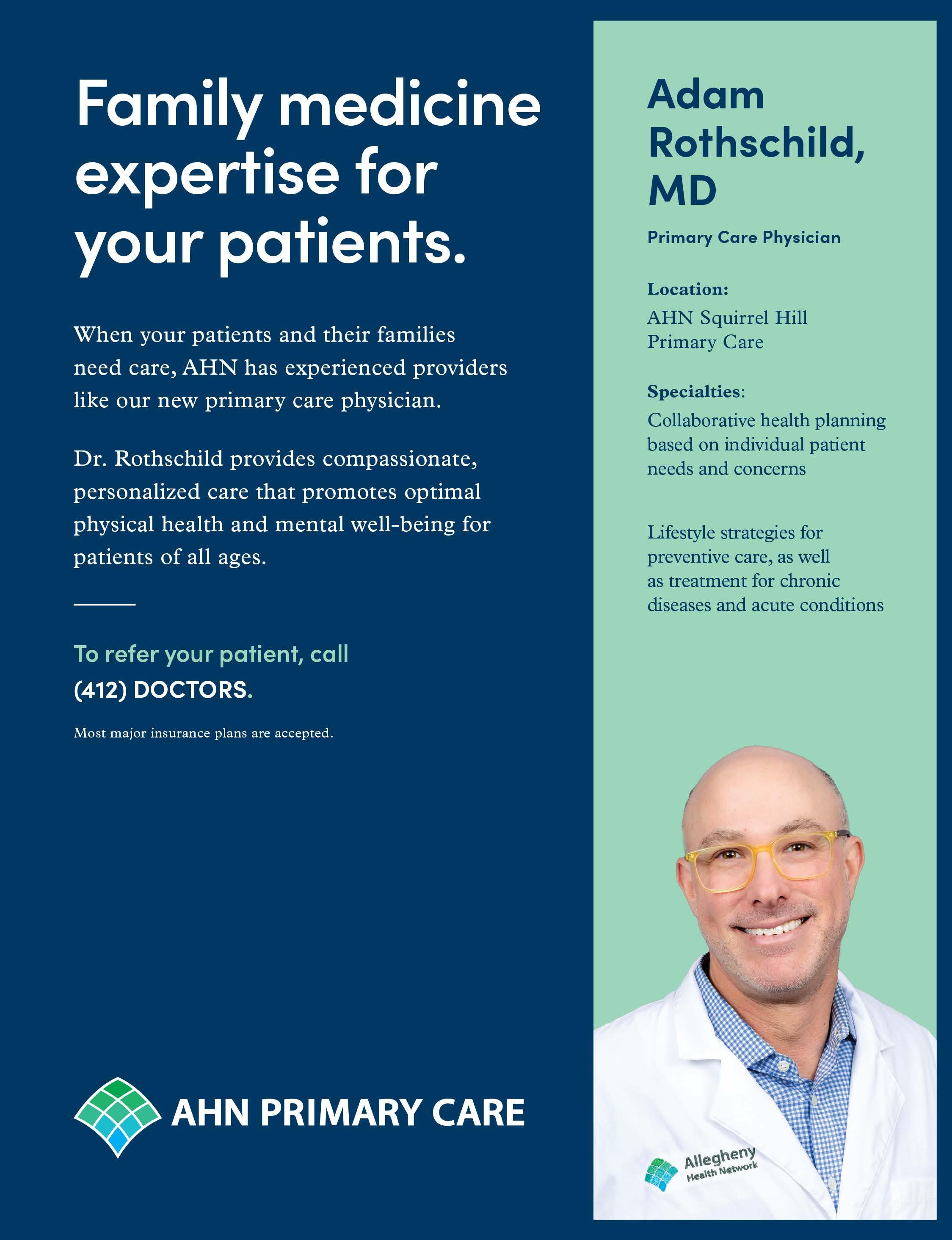

By: Sara Hussey, MBA, CAE
In the wake of widespread funding cuts to vaccine-centered organizations across the country, the Allegheny County Medical Society (ACMS) and the Allegheny County Immunization Coalition (ACIC) are stepping forward with a renewed commitment to vaccine education and public health advocacy in our region.
ACIC has long served as a trusted coalition of healthcare professionals, public health leaders, educators, and advocates—all united in a mission to increase vaccine access and awareness in Allegheny County. Now, with federal funding drying up and immunization efforts facing growing challenges, ACMS and ACIC have partnered to preserve and strengthen this vital work.
As of July 2025, ACIC will operate as a fiscally sponsored project of the ACMS Foundation. This partnership ensures the coalition can continue its missiondriven work while gaining added operational stability and long-term sustainability. Together, ACMS and ACIC will work to protect access to sciencebased immunization education, uphold the integrity of public health messaging, and mobilize support for the region’s vaccine infrastructure.
“This partnership is about more than structure—it’s about safeguarding a community resource that’s been at the forefront of vaccine education for over two decades,” said Sara Hussey, MBA, CAE, Executive Director of ACMS. “At a time when vaccine education efforts across the country are facing growing uncertainty around funding, we’re ensuring that ACIC remains a strong and visible force for public health in Western Pennsylvania.”
Membership in ACIC is free and open to all healthcare professionals, including physicians, nurses, pharmacists, students, public health staff, and community advocates. The coalition meets regularly, collaborates across systems, and leads local campaigns to raise vaccine confidence and coverage. Learn more or get involved at www.immunizeallegheny. org
The coalition is led by the 2025/26 ACIC Chair Jennifer (Jenny) Bender, whose work has helped guide the
organization through a time of transition and renewed public health urgency.
Save the Date: ACIC’s Annual Immunization Conference
Join us on Tuesday, November 5, 2025, for ACIC’s annual conference—a day of education, collaboration, and renewed energy for protecting public health through immunization. The event brings together clinicians, advocates, and policymakers to explore the latest developments in vaccine research, outreach, and equity.

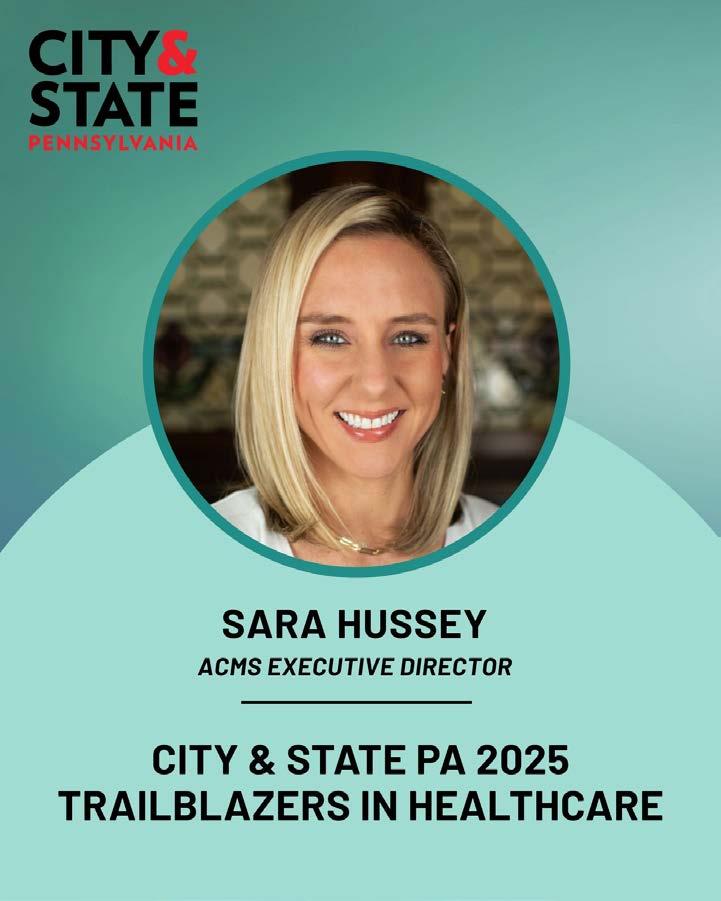
ACMS Leadership Recognized: Sara Hussey Named a 2025 “Trailblazer in Healthcare”
We are pleased to announce that Sara Hussey, MBA, CAE, Executive Director of the Allegheny County Medical Society, has been named one of City & State Pennsylvania’s 2025 Trailblazers in Healthcare.
While this honor rightly celebrates Sara’s personal leadership, it also spotlights the collective impact of ACMS and the ACMS Foundation. Over the past year, our team has:
• Expanded the Physician Wellness Program, offering confidential peer support and mental health resources.
• Increased Foundation grantmaking, directing funds to communitybased initiatives that improve public health.
• Strengthened advocacy efforts with PAMED and the AMA, ensuring that physicians’ voices guide healthpolicy decisions.
Sara’s vision and dedication have been instrumental in advancing these priorities, and this statewide recognition affirms the importance of the work we are accomplishing together.
We’re also pleased to see additional leaders from our region honored, including Michael Flanagan, President & CEO of St. Clair Hospital, and Dr. Donald Yealy, Chief Medical Officer and Senior Vice President for Health Services at UPMC. It’s a strong showing for Western Pennsylvania and a reflection of the outstanding leadership shaping healthcare across our community.
You can read Sara’s profile, and all the profiles of the honorees, here: www. cityandstatepa.com/power-lists/
After 41 years of dedicated service, Dr. Raymond Pontzer has officially retired from clinical practice. As one of the founding physicians of Romano, Pontzer & Associates, Dr. Pontzer built a strong, independent infectious disease practice that served thousands of patients across the Pittsburgh region with skill, compassion, and innovation.
Throughout his distinguished career, Dr. Pontzer was a leader not only in patient care but also in advancing the field of infectious diseases. He was
at the forefront of infection control, outpatient IV therapy (OPAT), antibiotic stewardship, and he played a critical role during the COVID-19 pandemic. His influence extended throughout the UPMC health system and the broader medical community, including his service as President of the Allegheny County Medical Society.
Dr. Pontzer was also a teacher, mentor, and guiding force to countless physicians, staff members, and colleagues. He created an environment where learning was encouraged, excellence was expected, and teamwork was essential. His calm, thoughtful leadership helped many navigate challenging times with confidence and clarity.
Though he is stepping away from clinical work, Dr. Pontzer’s legacy will continue to shape the future of infectious disease care in Pittsburgh. His contributions laid a foundation that will benefit patients for years to come.
As he enters retirement, we wish him joy, good health, and time to enjoy family, travel, hiking, and all the passions he has so fully earned.
Dr. Pontzer leaves behind not only an extraordinary medical career, but also the respect and gratitude of everyone privileged to work alongside him.

On July 26, ACMS showed up and showed out at the Annual Pirates Game! From the legendary Steelers-themed Blitzburgh Hideaway to the stunning views at PNC Park, over 100 ACMS members came together with family, friends, and colleagues to celebrate summer - Pittsburgh style.









By: Aya Al-Nazal, MS2, MS
August is psoriasis awareness month. It is important to understand the systemic implications of psoriasis outside of its categorization as a skin condition. Psoriasis as defined by the National Psoriasis Foundation (NSF) is a chronic, immune-mediated disease that causes the skin cells to build up quickly, resulting in red or discolored, itchy, and scaly skin patches.1 Psoriasis has traditionally been managed within the field of dermatology, yet emerging research has reframed it as a systemic inflammatory disorder with implications beyond the skin.2 One of the most clinically relevant, and potentially underrecognized, comorbidities is cardiovascular disease (CVD). For healthcare providers, understanding the pathophysiology, impact, and screening implications is essential for delivering comprehensive patient care. Retrospective database studies show that psoriasis is much more than a skin condition; it is a systemic chronic inflammatory disease with significant cardiovascular effects.3 There is a significant association between psoriasis and cardiovascular disease, including myocardial infarctions, strokes, hypertension, and atherosclerosis.
Epidemiology
Psoriasis has a global prevalence of 2–3% of the population. Epidemiologic data indicates that its impact extends well beyond the skin. Large cohort studies and meta-analyses consistently show that patients with psoriasis have substantially higher cardiovascular event rates than the general population.5,6,7 Research estimates suggest roughly a 40–60%
relative increase in risk for myocardial infarction, stroke, and cardiovascular mortality. This risk escalates with the severity of skin involvement and longer disease duration. Additionally, psoriasis confers increased cardiovascular risk even in younger patients (including those under the age of 50). Moderate–to–severe psoriasis frequently demonstrates markers of premature or subclinical atherosclerosis, and they experience relatively higher cardiovascular event rates than agematched peers.8 This further prompts the need for earlier risk assessment and intervention for patients with psoriasis. Pathophysiology: Why the Connection?
The pathophysiological link between psoriasis and cardiovascular disease is rooted in chronic systemic inflammation. Psoriasis is driven by immune dysregulation, particularly involving the Th1, Th17, and Th22 pathways, which release proinflammatory cytokines such as TNF-α, IL-6, IL-17, and IL-23.9 While these cytokines mount keratinocyte hyperproliferation in the skin, they also enter systemic circulation, promoting endothelial dysfunction which accelerates atherogenesis. This persistent inflammatory state causes oxidative stress, increases vascular permeability, and contributes to plaque instability. Furthermore, psoriasis is associated with metabolic syndrome; central obesity, insulin resistance, dyslipidemia, and hypertension; all of which increase the risk of cardiovascular disease. Both immune-mediated inflammation and traditional risk factors contribute to
this elevated risk, leading to premature and aggressive forms of cardiovascular disease. This underscores the need for early recognition and intervention.
Psoriasis is a dermatologic condition with systemic consequences. The established association between psoriasis and cardiovascular disease has direct consequences for patient care. Recognizing and acting on the CVD connection can change patient trajectories and potentially save lives. Clinicians should view psoriasis not only as a skin condition but as a systemic inflammatory disease with extensive effects. Risk assessment for cardiovascular disease should be integrated into routine psoriasis management, particularly for patients with moderate to severe disease or long disease duration. ASCVD risk is commonly calculated using the ASCVD pooled cohort risk equation. AAD/ NSP recommend multiplying the risk score calculated for psoriasis patients (>10% body area involvement or on systemic or phototherapy) by 1.5 to more accurately represent their true CV risk, which is underestimated by the standard risk equation. The ACC/ AHA recommend considering chronic inflammatory diseases like psoriasis as “risk enhancers” when determining patient risk. These risk scores are clinically relevant as they are used to determine timing for statin initiation for primary prevention of CV events. Simple measures such as regular blood pressure checks, lipid panels (based on age and baseline risk), glucose monitoring, and lifestyle counseling can be implemented during dermatology or
primary care visits. Equally important is patient education, explaining the connection between skin inflammation and heart health to motivate patients to adopt healthier lifestyle choices. For high-risk patients, timely referral to cardiology can optimize outcomes. Recognizing psoriasis as part of a broader systemic disease encourages a proactive, multidisciplinary approach, improving both dermatologic and cardiovascular prognoses.
Effective management of psoriasis and its cardiovascular implications requires a multidisciplinary approach that moves beyond dermatology alone. Psoriasis is increasingly recognized as a systemic inflammatory disease and so working as a team can ensure patients optimal outcomes. Collaboration between primary care, dermatology, and cardiology can include:
• Dermatology triggers appropriate CV and metabolic screening by notifying primary care physicians of high-risk patients.
• Primary care can integrate lifestyle counseling and manage modifiable CV and metabolic risk factors.
• Cardiology input is warranted for patients with established CVD or high calculated risk.
Patient Communication
Patients often see psoriasis as “just a skin condition”. Therefore, effective patient communication is essential in bridging the gap between dermatologic symptoms and systemic health risks. Many individuals with psoriasis are unaware of its link to cardiovascular disease, and misconceptions can reduce the opportunity for disease prevention. Clinicians should use clear, non-alarming, and patientfriendly language to explain that the inflammation driving skin lesions can also affect the heart and blood vessels. Framing the discussion around modifiable risk factors, such as diet, physical activity, smoking cessation, and adherence to prescribed treatments, allows the patients to be proactive in implementing healthy
lifestyle changes. Some tools include visual aids, analogies, and patientfriendly educational materials (such as pamphlets or flyers) can make complex pathophysiology easier to grasp. Importantly, communication should be ongoing to foster positive reinforcement, focusing on followup conversations discussing the importance of cardiovascular screening and lifestyle changes. This approach not only builds trust but also increases the likelihood of patients agreeing to practice healthy habits and long-term adherence to preventive strategies.
Aya is a second-year medical student passionate about pursuing dermatology. She hopes to address dermatological conditions while working to reduce healthcare disparities affecting underserved patient populations. Aya can be reached via email at aa4682@ drexel.edu.
CHECK OUT THE

CHECK OUT THE


The Allegheny County Medical Society Board Elections will be held electronically from September 2 through September 9. All eligible members will receive a ballot via their preferred ACMS/PAMED email. Be sure to check your inbox and make your voice heard in shaping the future leadership of ACMS.
Here are the members running for the five open seats on the ACMS Board of Directors. Elected candidates will serve a three-year term from January 1, 2026 through December 31, 2028. Visit www.acms.org/nominations/acms-elections/ to review the entire 2026 candidate slate.
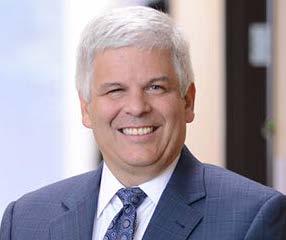

Dr. Colangelo is currently an internal medicine physician for the Allegheny Health Network. He also serves as a Medical Director and Clinical Lead for Highmark’s Risk Revenue Department. He brings decades of experience building one of Allegheny County’s more prominent medical groups and would be instrumental in promoting the ACMS mission and expanding membership.
Dr. Lim is double-board-certified and fellowship-trained Mohs surgeon and dermatologist at Zitelli, Brodland & Lim Skin Cancer Center, where he serves as Assistant Program Director for the Micrographic Surgery and Dermatologic Oncology Fellowship and Clinical Assistant Professor of Dermatology and Dermatologic Surgery at Duquesne University College of Osteopathic Medicine. He is an early-career physician who brings a diverse background in both academic and private practice settings, having worked as both an employed and self-employed physician. He understands firsthand the challenges of balancing roles as a clinician, businessperson, administrator, educator, and public servant.
Dr. Lim has advocated for physician payment reform at the local, state, and national levels, including on Capitol Hill, and is deeply committed to protecting the integrity of the medical profession. With the rapid evolution of healthcare— driven by practice consolidation, scope-of-practice expansion, AI integration, and shifting reimbursement—Dr. Lim believes it is essential that ACMS remain a strong, unifying voice for all physicians
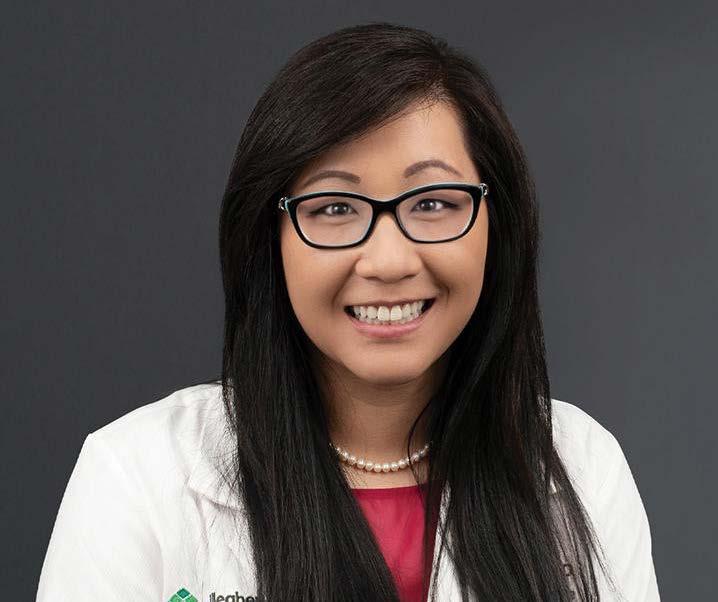
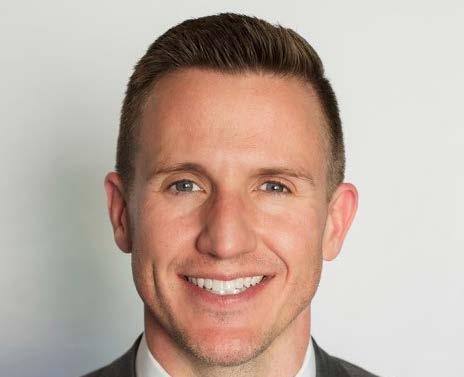
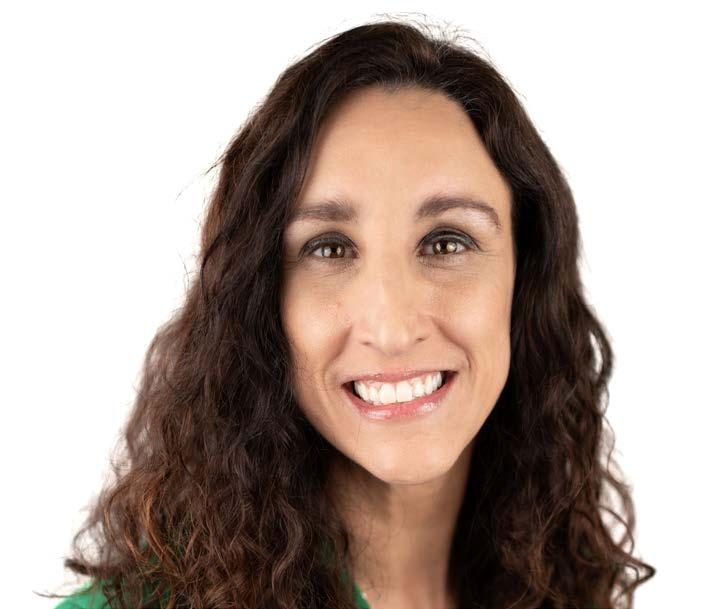

Dr. Young is a Pulmonary, Critical Care, and Neurocritical physician at Allegheny Health Network. She is passionate about promoting physician well-being, autonomy, and collaboration across specialties. In addition to her clinical work, she serves as Chair of the ACMS Women in Healthcare Committee, where she leads initiatives that support leadership development and community among women physicians. Dr. Young is eager to bring her experience and perspective to the Board as an advocate for clinicians across all stages of their careers.
Dr. Mount hospital-based dermatologist specializing in complex, multidisciplinary care and inpatient dermatology in Pittsburgh for the past 10 years, Dr. Mount emphasizes interdisciplinary collaboration to promote public health and the future of medicine. He is a United States Air Force veteran and deployed twice overseas in Operation Enduring Freedom. He also serves on the ACMS House of Delegates, the Pennsylvania Academy of Dermatology Board of Directors and as their Medical Economics committee chair, and on the West Penn Hospital Executive Committee. He also serves on the ACMS House of Delegates and Bulletin Editorial Board, the Pennsylvania Academy of Dermatology Board of Directors as their Medical Economics committee chair, and on the West Penn Hospital Executive Committee.
As a current member of the ACMS Board of Directors and an Alternate Delegate, Dr. Elway has had the opportunity to engage deeply in the work of the Society and represent the voices of her colleagues. She believes she would be a strong fit for a second term, bringing continuity and perspective as a selfemployed family physician. She is passionate about advocating for the needs of independent practitioners and ensuring ACMS remains a supportive resource for all physicians.
*Currently Serving on the ACMS Board of Directors
The old refrain, "all politics is local," is more relevant than ever with the daily challenges facing physicians—from evolving federal policies (CMS, CDC, Congress) to changes driven by insurance companies, hospitals, and the pharmaceutical industry. As a long-time ACMS member, Dr. Eller looks forward to serving on the Board to advocate for members and keep them informed in this shifting landscape.
By: Nadine Popovich, Melanie Mayer, and Haley Thon
Allegheny County Immunization Coalition (ACIC) — 2025-2026 ChairJenny Bender, MPH, BSN, RN, CIC: The Allegheny County Immunization Coalition is entering a new chapter—one that places physicians more squarely at the center of regional vaccine advocacy and public health strategy. Through a new partnership with the Allegheny County Medical Society Foundation, ACIC is strengthening its ability to support clinicians, amplify trusted voices, and coordinate efforts across systems. You can read more about the collaboration at https://www. acms.org/a-stronger-front-for-publichealth-acms-and-acic-join-forces-topromote-immunization-awareness/.
This fall, ACIC will host two events:
• September 18, 9–11 AM (Hybrid):
Beth Hoffman, PhD, MPH, of University of Pittsburgh Public Health, will present From TV to TikTok: Leveraging Media for Vaccine Communication. The session will examine how physicians and public health professionals can navigate—and even lead—effective messaging in a rapidly changing media environment. Registration opens August 6 at www. immunizeallegheny.org.
• November 5: The 20th Annual ACIC Conference will be held at the Regional Learning Alliance. This year’s theme, Uniting for Immunity, centers on the role of vaccination in public health, workforce resilience, and community trust. CME details and registration will be released soon.
ACIC welcomes physicians and
healthcare professionals as active participants in its multidisciplinary coalition. Membership is free, and engagement can range from simply staying informed to helping shape regional strategy. To join and receive updates, visit immunizeallegheny.org.
American College of Surgeons
Southwestern Pennsylvania Chapter (ACS-SWPA) — 2025 President –Richard Fortunato, DO, FACS: The ACS Southwestern Pennsylvania Chapter is currently on summer hiatus and will resume programming in the fall with the third event in our resident series— Surgical Jeopardy. Details will be forthcoming.
In the meantime, we encourage members to consider attending the ACS Clinical Congress 2025, taking place October 19–23 in Chicago. This annual meeting offers world-class education, unparalleled networking, and the latest updates across surgical disciplines. Learn more at facs.org.
We look forward to reconnecting this fall!
Pennsylvania Geriatric Society Western Division (PAGS-WD) — 2025 President - Heather Sakely, PharmD, BCPS, BCGP:
2025 Geriatrics Teacher of the Year Award – Nominations Needed
The Society is proud to announce that nominations are now being accepted for the 2025 Geriatrics Teacher of the Year Award. This prestigious annual honor recognizes two outstanding educators, one physician and one healthcare professional, who have shown exceptional commitment to advancing geriatrics education. Award recipients are individuals who have made a lasting
impact on the training and development of future geriatric professionals and have significantly contributed to the growth of geriatrics education across the healthcare continuum. Full details, including eligibility requirements, selection criteria, and the nomination form, are available on the Society’s website at Pennsylvania Geriatrics Society - WD - Teacher of the Year. Fall Program 2025
Join us for this year’s Fall Program and Business Meeting, taking place on October 29, 2025, from 5:30 to 8:30 PM at the PNC Champions Club at Acrisure Stadium. Following our final business meeting of the year, the evening will conclude with an engaging panel discussion exploring the latest developments and impacts of recent healthcare policy changes. Stay tuned— registration details coming soon!
NEW! PAGS-WD Journal Club
This series has the goal of kicking off the first event in December 2025 and if successful, will occur quarterly thereafter. This series is designed to engage learners in the critical review of evidence-based medicine, with a unique opportunity to invite the article’s author to join the discussion. While we aim to feature articles from JAGS (Journal of the American Geriatrics Society), high-quality publications from other reputable journals will also be considered. Each session will be held via Zoom with the format still being reviewed by the committee but ultimately will include a student-led presentation of a selected article followed by a Q&A session.
The Pittsburgh Ophthalmology Society (POS) — 2025 President - Laurie A. Roba, MD: 2025-2026 Monthly Meeting Series Begins September 4
The Pittsburgh Ophthalmology Society (POS), led by President Laurie A. Roba, MD, is set to open its 20252026 meeting season on September 4. The Society is pleased to welcome Asim Piracha, MD, Associate professor at the University of Kentucky Department of Ophthalmology and University of Louisville’s Department of Ophthalmology and Visual Sciences and Board-certified ophthalmologist at Commonwealth Eye Surgery, Lexington, Kentucky.
Special thanks to Joel Brown, MD for inviting Dr. Piracha, and to our sponsors Dompé, Ocular Therapeutix, and Rayner, for their support of the meeting.
Dr. Piracha chose ophthalmology because of the amazing impact it has on people’s lives when their vision is restored. A recognized leader in his field, he is a past President of the American Board of Eye Surgery and is on the board of the American College of Eye Surgeons. In Kentucky, Dr. Piracha was recently appointed by the Governor to the Kentucky Board of Licensure. He is dedicated to remaining at the forefront of medical advancements and regularly speaks at conferences and publishes articles in ophthalmologic trade journals.
All meetings, including this one, will be held at the PNC Champions Club at Acrisure Stadium (100 Art Rooney Ave, Pittsburgh, PA 15212). The venue is centrally located on the North Side with several parking lots within walking distance.
Registration begins at 4:00 pm, with the first lecture starting at 4:40 pm. Members will receive information, including the registration link, via email. Please note that registration is required (no walk-ins allowed) and will be managed online only.
For more details, please visit the POS website or contact Nadine Popovich, administrator.
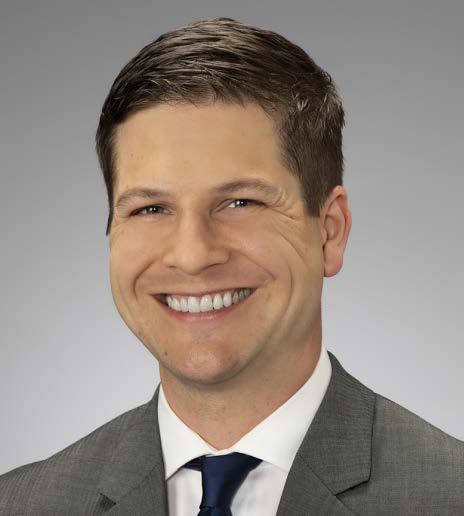
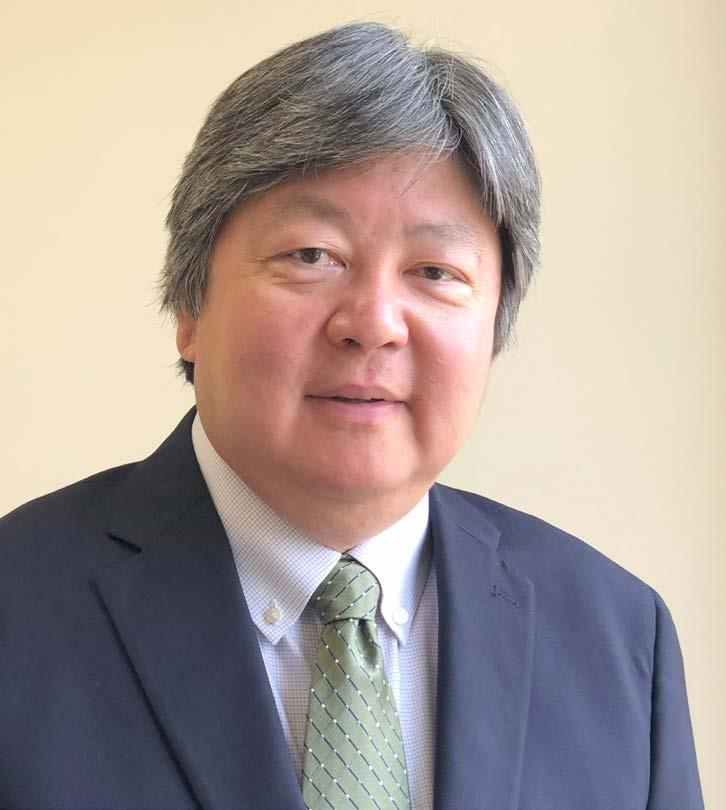
In membership news, we are proud to share that Dr. Andrew Williams, assistant professor in the Glaucoma Division at the University of Pittsburgh, has been named a Pennsylvania Top Physician Under 40 by the Pennsylvania Medical Society (PAMED). This award recognizes early career physicians making exceptional contributions, and Dr. Williams was nominated by Dr. Andrew Eller for his work addressing health disparities in ophthalmology.
Since joining Pitt in 2021, Dr. Williams has led innovative efforts to improve outcomes for vulnerable patients by integrating social needs screening into ophthalmology clinics. His work revealed significant unmet needs—like food insecurity and transportation— especially among patients with visual impairments. Through his leadership, these needs are now flagged in the EHR, allowing timely support via the department’s patient navigator program.
Dr. Williams will be honored at the ACMS 2025 Distinguished Awards program, scheduled for November 13.
Kenneth Cheng, MD, who has been selected for the 2025 Outstanding Advocate Award from the American Academy of Ophthalmology (AAO). This prestigious honor recognizes AAO members who have demonstrated a long-standing and impactful commitment to advocating for quality
patient eye care and advancing the profession at the state and/or federal level.
Dr. Cheng was nominated in recognition of his dedicated advocacy on behalf of children’s vision and pediatric ophthalmology. His work has made a lasting impact on access to care and professional standards in our field. He will be recognized during the AAO Opening Session on October 18 in Orlando, Florida.
Please join us in congratulating both Dr. Williams and Dr. Cheng on these well-earned honors!
